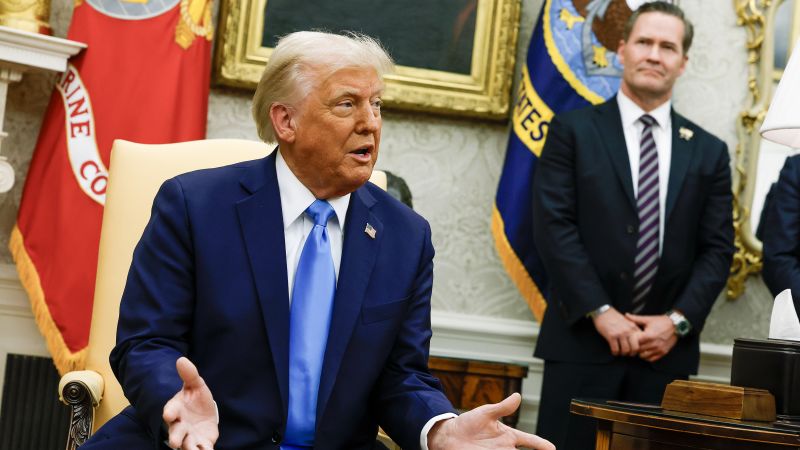Ukraine’s president warned at the Munich Security Conference on Saturday that the days of guaranteed US support for Europe are over.
Volodymyr Zelensky spoke in a week when a phone call between Russian President Vladimir Putin and US counterpart Donald Trump raised fears in Kyiv that it was being frozen out of negotiations on the war in Ukraine, with the White House also downplaying the prospects of Kyiv joining NATO.
Speaking to CNN’s Christiane Amanpour on stage at the security conference, Zelensky conceded he was “not happy” that Trump’s first call was with Putin.
The Ukrainian leader spoke the day after US Vice President JD Vance eviscerated America’s European allies at the conference, in a speech that barely touched on the war started by Russia’s full-scale invasion in 2022. Catch up on Vance’s speech here.
Here’s more of the latest from Munich:
Top Democrat slams Vance’s speech: Democratic Sen. Mark Warner, the vice-chair of the Senate Intelligence Committee, said during an interview with Politico that the vice president’s remarks did not speak for the majority of Americans. Warner said US partnership with Europe is “critical” to long-term security for the US, and that Russia would view Vance’s posture as favorable for its interests. He also said the vice president underestimated “the power of misinformation and disinformation” when Vance criticized what he characterized as a crackdown on free speech in Europe.
“NATO backstop”: In an interview with Politico, Republican Rep. Michael McCaul, who serves on the House Foreign Affairs Committee, said the US and its partners should threaten to put NATO membership for Ukraine “back on the table” if Russia invades the country again in the future, with that threat serving as a “backstop” to deter such an action. McCaul said he had raised the idea to Zelensky and “he likes it.”
Pressed on whether he disagreed with elements of Vance’s speech yesterday, the Texas lawmaker said it was important that America’s European allies know “we have their back.”
He also said he’d personally avoid meddling in another country’s politics, when asked about the US vice president’s controversial meeting with the co-leader of Germany’s far-right Alternative for Germany party. “I don’t know what the goal was there. I mean, I’ll let him speak to that,” McCaul said of Vance.
This post has been updated with additional comments from the conference.



